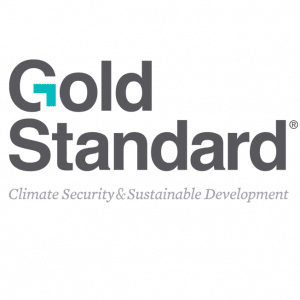-
Vilket ansvar tar Safe@Work för miljön?
-
Safe@Work har sedan starten 2016 hjälpt ett stort antal företag och tusentals anställda att minska sin miljöpåverkan genom ett mer klimatsmart körsätt och arbetssätt. Tillsammans har deltagarna visat resultat för att uppnå en årlig minskning av sina utsläpp med över 2 000 ton koldioxid per år.
Utbildning från Safe@Work – Alltid 200% klimatkompenserat
Om vi nu hjälper våra kunder att minska sin miljöpåverkan så ska vi självklart inte vara sämre! Vi på Safe@Work tog därför beslutet redan vid starten 2016 att alla utsläpp kopplade till vår verksamhet ska vara klimatpositiv genom 200%klimatkompensering. Klimatkompensering har tyvärr ofta varit ett ifrågasatt sätt att minska sin miljöpåverkan, men vi har gjort vårt allra bästa för att både hjälpa globalt och lokalt där hjälpen behövs som mest.
1 kg CO2 utsläpp från en utbildning = 2kg CO2 kompenserat genom bidrag till lokala klimatprojekt
Utsläppen för varje utbildning och kursdeltagare kompenseras därför dubbelt upp genom bidrag till klimatprojekt certifierade både av FN och Gold Standard. På så sätt vet vi att alla insatserna ger dokumenterad effekt både på klimat och lokala levnadsvillkor där situationen som mest behöver förbättras.
2016 – 2018 har vi valt att bidra till 2 projekt i Rwanda och Kambodja, du kan scrolla ner för att läsa mer om projekten och de olika certifieringarna.
2019 – 2021 klimatkompenserar vi genom bidrag till 3 Gold Standard-projekt i Rwanda, Tchad & Brasilien. Scrolla ner för att läsa mer.
2019 - 2021 Solar Cooking for Refugee Families in Chad
-
Tens of thousands of refugees from Darfur are offered the chance to vastly improve their life by using solar cookers. Having to venture outside of the camp to collect scarce firewood and the risk of being attacked or raped has been an everyday fear for women in the refugee camps in Eastern Chad
Since the start of the programme in 2005, 40.000 families in the refugee camps and the surrounding villages have been equipped with solar cookers made out of carton and aluminium foil that, when folded in a semi-parabolic form can be used to heat water and cook entire meals. Due to the omnipresence of sun in this region, the cooker can be used 330 days out of the year, thus almost completely eliminating the need for firewood.
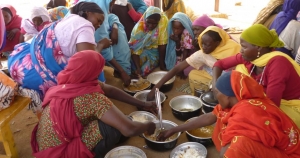
-
- Ensures safety: More than 50,000 women and girls that don’t have to risk their lives searching for firewood outside the camps.
- Produces clean energy: Average of 20,000 tonnes of CO2 equivalent greenhouse gases saved annually by the project
- Slows down deforestation: More than 50% of the local vegetation saved
- Empowers Women: Hundreds of new jobs for women in the camps, development of skills on how to manufacture their own solar cookers and how to manage and track distribution
- Generates employment: A team consisting of around 20 women and few men per camp is responsible for the correct assembly, distribution and supervision
2019 - 2021 Safe Water Access in Rwanda
-
CO2balance works with local groups and NGOs in Rwanda to deliver clean, safe water by identifying and rehabilitating broken-down boreholes. An ongoing maintenance programme, alongside water sanitation and hygiene training, ensures a safe and reliable community water supply is maintained.
Each of the 12 micro-projects under this programme prevent 10,000 tonnes of CO2 equivalent emissions.
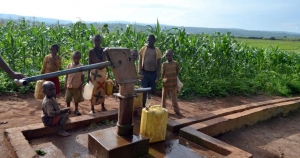
What this means for local people.
As well as reducing emissions and helping our climate, this project provides:
-
- A supply of clean safe water for poor communities
- Reduced incidence of waterborne diseases and diarrhoea, lifting the burden of disease on people’s livelihoods
- Less time spent collecting water (traditional sources, such as open wells and rivers, are often far away and highly seasonal)
- Reduced expenditure on wood fuel, leaving money free for other household expenses
- Reduced pressure on local wildlife and ecosystems due to reduced deforestation
2019 - 2021 Balsas Renewable Energy Project
-
In Brazil, deforestation is the largest source of greenhouse gas emissions in the country, and illegal logging for firewood is a key component of this issue. The Balsas Renewable Energy Project combats deforestation and climate change by replacing a Brazilian factory’s primary fuel source, deforested wood, with renewable energy.
For decades, the Balsas factory used deforested native wood to fire its kilns. Today, 100% of its fuel comes from local agricultural waste: rice husks. The project transforms this biomass, which would have been inappropriately discarded otherwise, into usable fuel. The fuel switch also benefits the employee’s health and working conditions in a number of ways.
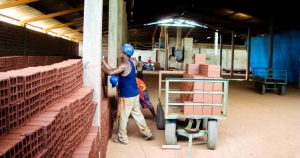
-
- About 4,000 tons per year of waste (rice husks) diverted from inadequate destination and reintroduced in the production process
- Improved working conditions to employees (45 employees)
- Housing for employees’ families with utility costs included (about 60 people housed)
- Prevents deforestation - 980ha of forest saved in the course of 10 years, the equivalent to 784 soccer pitches
- Prevents GHG emissions - 5,688t of CO2e avoided per year.
2016 - 2018 Cleaner, safer water in Cambodja
-
I Kambodja dör 10 000 personer varje år på grund av förorenat vatten. För de flesta har lösningen varit att koka vattnet på vedeldade spisar med giftig rök och förorenat inomhusklimat som följd. Det här Gold Standard certifierade projektet har hjälpt nästan 2 miljoner invånare till rent dricksvatten genom keramiska vattenfilter. Produktion och distrubiton av filtren sköts lokalt och skapar nya arbetsmöjligheter.
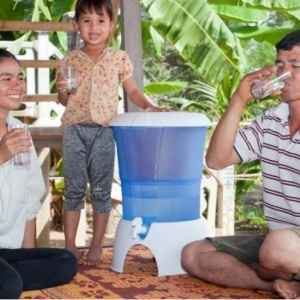
-
- National Energy Globe Award (2013) * Ashden Award (2012)
- GIZ IMPACT Business Award (2011)
- En årlig besparing på 95 000 ton CO2
- Över 400 000 filter distribuerade
- En årlig besparing på 49 000 ton trä
2016 - 2018 Cleaner cooking stoves in Rwanda
-
Det här Gold Standard certifierade projektet består egentligen av 14 mindre projekt som tillsammans hjälper lokalbefolkningen i Rwanda genom energieffektiva spisar producerade lokalt och som förutom sin klimatnytta och ökade jobbtillfällen bidrar till minskad skadlig rök och föroreningar i hemmen.
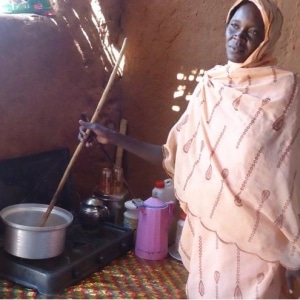
-
- Utsläpp motsvarande 140 000 ton CO2 har förhindrats
- Över 22 000 familjer och 33 000 barn har påverkats positivt av projektet
- Skövling av träd motsvarande 75 000 ton har förhindrats
CDM - Clean Development Mechanism
-
En grundförutsättning när vi valde att klimatkompensera var att det skulle göras i trovärdiga projekt med en dokumenterad klimatnytta. Därför valde vi att bidra till FN-certifierade CDM-projekt som med långsiktiga satsningar på minskade utsläpp också bidrar till en hållbar utveckling och ger positiva effekter både socialt och ekonomiskt. Varje CDM-projekt granskas kontinuerligt av auktoriserade revisorer där den faktiska utsläppsreduktionen påvisas och certifieras därefter av FN med ett så kallat CER (Certified Emission Reduction). Certifikaten utgör ett bevis på att leverantören genomfört den klimatnytta som utlovat. Samtliga CDM-projekt uppfyller Kyotoprotokollets kriterier.

Gold Standard
-
Vi har även valt att de projekt som vi stödjer också ska vara certifierade enligt Gold Standard som är den högsta och mest accepterade certifieringen för CDM-projekt. Gold Standard är en ideell stiftelse grundat 2003 av bland andra WWF och stöttas både av internationella miljöorganisationer och FN. För att bli ett Gold Standard projekt räcker det inte att kunna visa sin positiva miljöpåverkan, projektet måste också bidra till minst tre av FNs hållbarhetsmål. Till exempel genom att på lokal nivå öka jämställdheten, skapa jobbtillfällen och bidra till en förbättrad hälsa.
